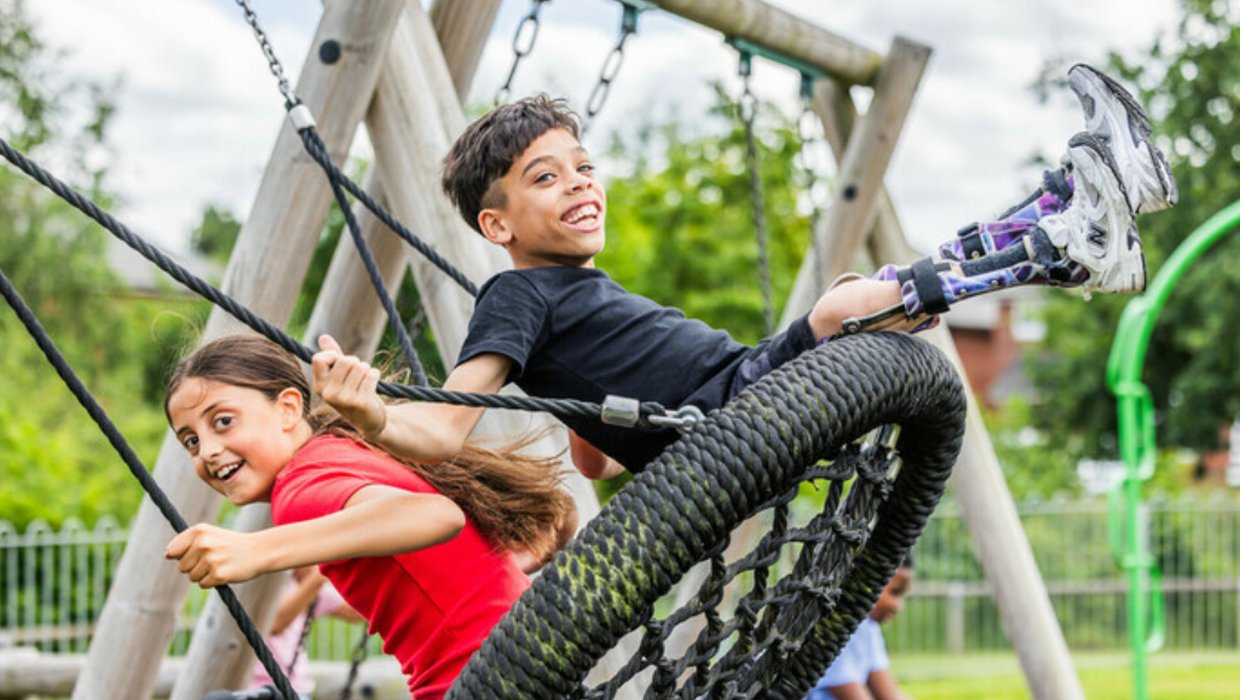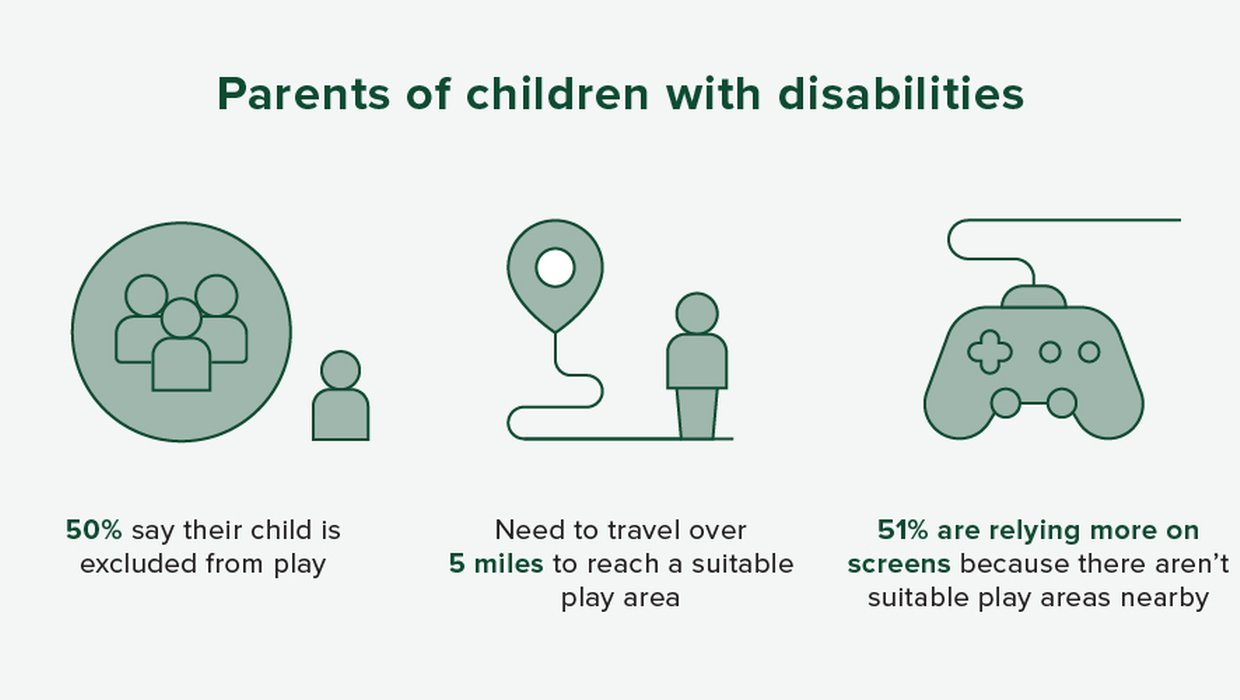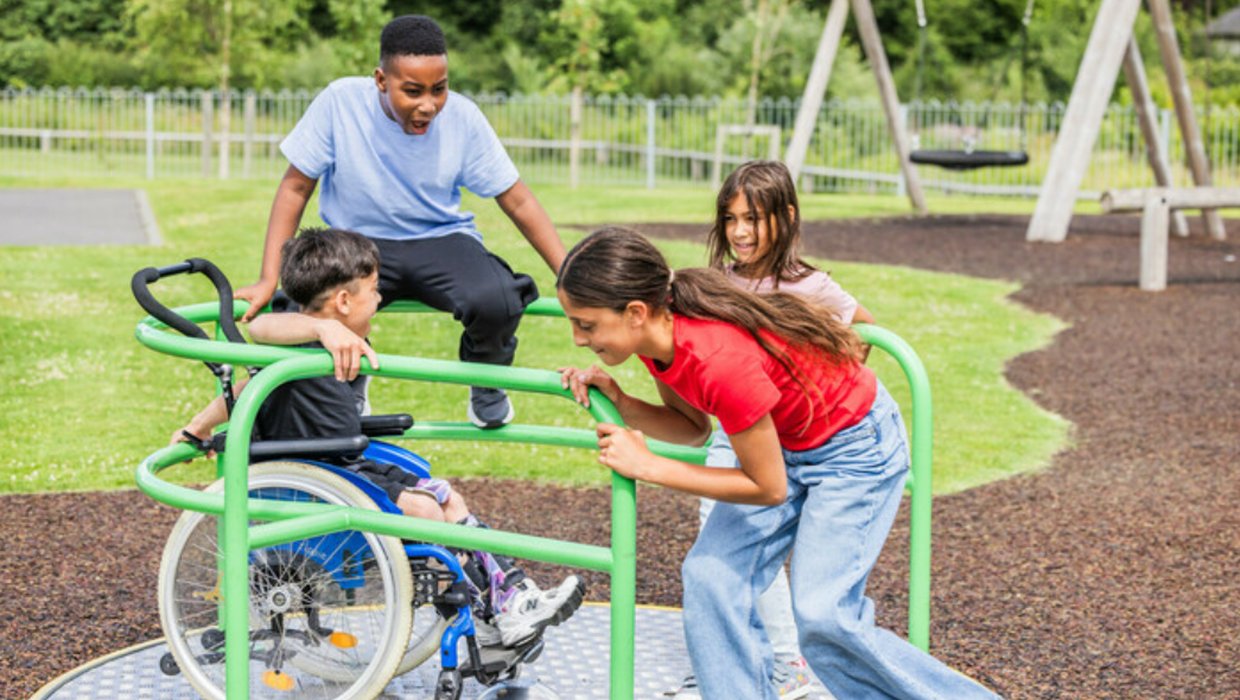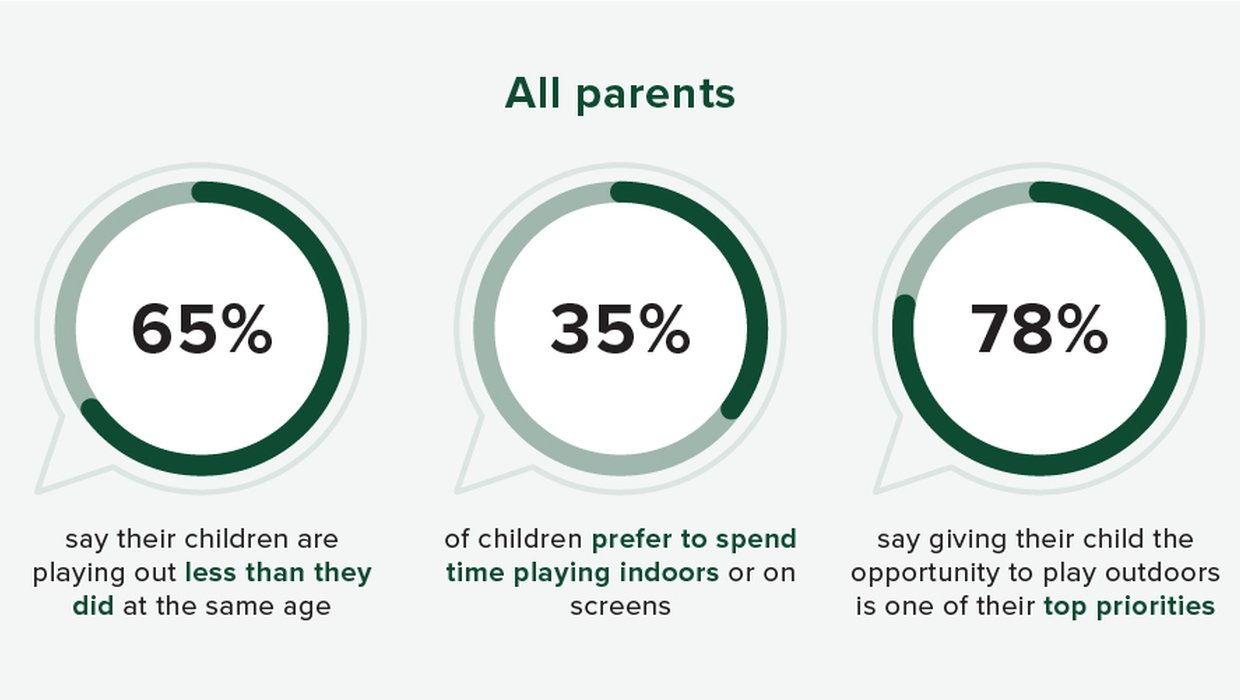Children with Disabilities left out of Play Due to Inaccessible Playgrounds
New research reveals children with disabilities are locked out of playgrounds. Barratt Redrow is committing to prioritising inclusive play
- Half of parents of children with disabilities surveyed say their child is excluded from play due to playgrounds being inaccessible to them
- Parents of children with disabilities travelling an average of more than 5 miles to reach a suitable play area
- As well as reducing friendships and confidence, parents are having to turn to screentime to fill the gap
- To support parents and children, the UK’s largest housebuilder Barratt Redrow is committing to ensure every upcoming play area they create is inclusive and accessible
New research reveals children with disabilities are locked out of playgrounds. Half of parents surveyed say their child is excluded from play due to playgrounds being inaccessible to them[1]. Parents of children with physical disabilities whose child wants to visit a playground are travelling an average of 5.37 miles from their homes to reach a suitable play area. As a result, 51%1 say they are relying more on screens because there are not enough suitable outdoor play areas nearby.

Children on swing

The research of over 2,000 parents from across the country, showed that exclusion from play is an issue for disabled and non-disabled children alike. A third have struggled to find a playground that accommodates their child’s needs (33%) and is safe for them (34%) and almost two thirds (65%[2]) of parents say their children are playing out less than they did at the same age. The lack of play is having a negative impact on their child’s ability to make friendships, confidence and sense of adventure, and shockingly over a third (35%) of children now prefer to spend time playing indoors or on screens, creating barriers for children accessing outdoor play.
To get the nation playing out again, Barratt Redrow is today making a landmark commitment to prioritise inclusive play spaces across its developments.
This new commitment will see the housebuilder incorporate inclusive and accessible play areas across their new developments, working with children and young people to design play spaces that meet the needs of the local community where possible. As the UK’s largest housebuilder this could deliver up to 100 new accessible and inclusive play spaces for parents and children to enjoy each year.


David Thomas, CEO of Barratt Redrow, said: “This isn’t just about playgrounds, it's about building places where families can truly thrive, and that starts by ensuring every child can safely and confidently enjoy the freedom, fun and benefits that outdoor play delivers.
We want local authorities and other housebuilders to work together to make inclusive and accessible play the standard, not the exception. When we build with all children in mind, we can create places that work better for everyone.”
“Play isn’t a luxury — it’s a lifeline for connection, confidence, and childhood itself. Yet for too many disabled children and young wheelchair users, it remains heartbreakingly out of reach,” said Sarah Pugh, CEO of Whizz Kidz. “As one of our long-term partners, we’re proud to have worked with Barratt Redrow on this bold and meaningful commitment. Together, we’re reimagining what inclusive communities can truly look like — where every child, regardless of ability, has the freedom to play, belong, and thrive close to home.
Mum of three and neurodiversity campaigner, Christine McGuinness has joined forces with Barratt Redrow to highlight the challenges parents of neurodiverse and disabled children face.
Commenting on the need for inclusive play spaces, Christine said: “As a mum to three neurodiverse children, I know how overwhelming and sometimes isolating traditional playgrounds can be. Inclusive spaces shouldn’t be a luxury; they should be the norm. Every child deserves a chance to play, to feel part of their community, and to just be themselves.
Outdoor play isn’t just fun, it’s essential. It helps children build confidence, develop social skills, stay active and connect with the world around them. For families like mine, having a local inclusive playground isn’t just convenient, it’s life changing. That’s why I’m proud to support Barratt Redrow’s commitment. Because all children deserve a place to play, and all families deserve to feel included.”


The Play Off: Mental Health Concerns Grow
The consequences of children being excluded from play are significant. Parents report rising rates of social isolation, anxiety, and difficulty making friends. Nearly half say the lack of outdoor play is directly affecting their child’s physical fitness (46%), motivation to exercise (45%), and increased social anxiety (45%).
Nearly three-quarters of parents (72%1) believe this kind of exclusion could have long-term impacts on their child’s mental health.
As well as impacting children, the challenge to play out is impacting parents too. Majority (78%1) say giving their child the opportunity to play outdoors happily and safely is one of their top priorities, however 38%1 say the state of play is impacting negatively on their own mental health, and a further third (33%1) say it’s disrupting their relationship with their partner. And as concerns about screentime mount, 64%1 say they are actively trying to reduce their child’s screen time, but admit they struggle for inspiration.
Barratt Redrow’s Commitments
As the UK’s biggest housebuilder, Barratt Redrow is ensuring play for everybody is the standard, not the exception. In practice, its new Inclusive Play Guidance means:
- Every play space being designed by Barratt Redrow will include inclusive equipment, accessible surfaces and be located in safe and easy to access locations for the whole community to enjoy.
2. Designs will allow for active, challenging, imaginative, sensory and quiet play for children and young people, while encouraging social interaction between neighbours and friends.
3. Play spaces will be integrated into high quality landscapes at the heart of our developments, bringing people closer to nature.
4. Wherever possible, Barratt Redrow will work with children and young people to ensure they are continually responding to the needs of the local community.


*Our teams work on planning applications for a period of six months before submission, therefore the new commitment will apply to all new planning applications from January 2026 onwards.
As well as children’s charity Whizz Kidz, the Barratt Redrow Commitments and New Design Guidelines were created with support from industry bodies, including Play Wales, Play England, play expert Tim Gill and children’s psychologist Prof. Helen Dodd.
For more information, visit www.barrattredrow.co.uk/playmaking
-ENDS-
Notes to editors:
The research was conducted by Censuswide, among a sample of 2003 Parents of children between 4-17 (parents aged 19+). 500 with physical disabilities and 270 who have neurodivergent disabilities. The data was collected between 09.06.2025 - 18.06.2025.
Censuswide abides by and employs members of the Market Research Society and follows the MRS code of conduct and ESOMAR principles. Censuswide is also a member of British Polling.


